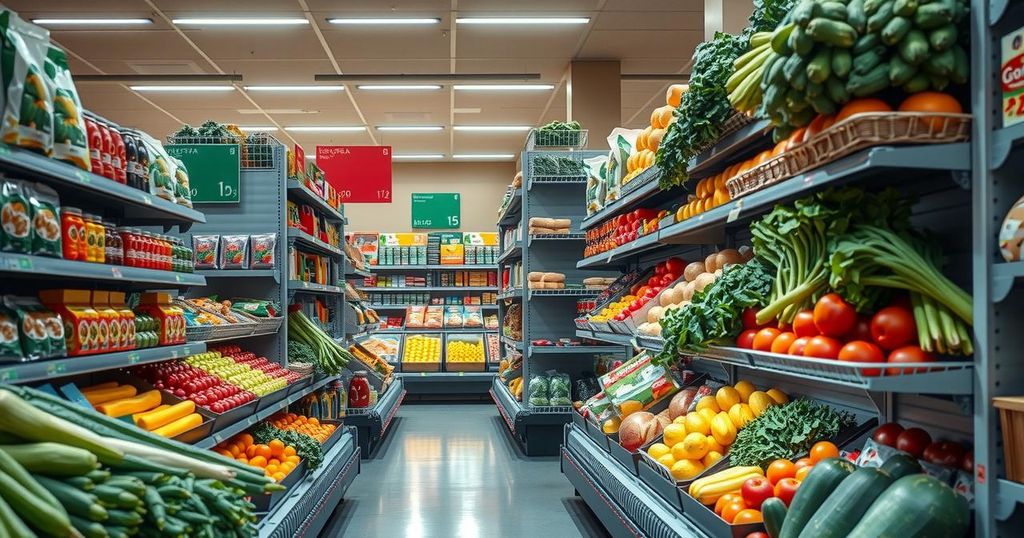President Trump’s proposed 25% tariffs on goods from Mexico and Canada could significantly raise grocery prices for American families, already facing rising food costs. Mexico and Canada are primary suppliers of essential agricultural products, and tariffs specifically targeting these items may press higher consumer expenses. The broader implications of such tariffs raise concerns about U.S. dependencies on these neighboring economies for food and goods.
On February 1, President Donald Trump confirmed that a 25% tariff would be imposed on goods imported from Mexico and Canada, both of which are crucial suppliers of agricultural products to the United States. Such tariffs are expected to increase food prices, already a concern for American shoppers facing rising grocery costs.
Mexico is the primary supplier of fruits and vegetables to the United States, while Canada exports significant volumes of grains, livestock, meat, and poultry. While specific commodities that would incur tariffs remain uncertain, it is anticipated that agricultural products will face steeper prices, which grocery retailers may have no choice but to pass on to consumers.
Despite the U.S. typically exporting more agricultural goods than it imports, the growth rate of imports has surpassed that of exports over the past decade, thus increasing dependency on Mexico and Canada. Favorable agricultural conditions in these neighboring countries have made them indispensable to U.S. food supply chains, especially amid the impacts of climate change.
Recent statistics reveal that Mexico and Canada collectively accounted for approximately $83 billion of the total $196 billion in agricultural imports that the United States processed last year. Other significant international suppliers include the European Union, Brazil, and China, though Mexico and Canada remain vital partners in American agriculture.
In addition to food imports, Mexico and Canada are major trading partners for the United States overall, with imports valued at around $467 billion from Mexico and $337 billion from Canada as of November of last year. Both countries rank among the top three sources for U.S. goods, including vehicles, oil, and electronics, highlighting their importance to the U.S. economy.
The article discusses the implications of President Trump’s decision to impose a 25% tariff on goods imported from Mexico and Canada, focusing on how this could affect grocery prices in the United States. The reliance on these neighboring countries for agricultural products is underscored, as well as the overall trade relationship that defines economic interactions between the U.S. and its northern neighbors. It highlights concerns about rising food costs amid tariffs and the complexities of U.S. agricultural dependence on these suppliers.
In summary, the imposition of tariffs by President Trump on goods from Mexico and Canada is likely to result in increased grocery prices for American consumers. Both nations are integral to U.S. food supply chains, and the resulting economic ramifications will affect purchasing patterns. Ultimately, this decision underscores the intertwined relationship between trade policies and everyday consumer costs.
Original Source: www.cnn.com




